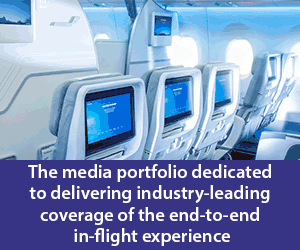The financial results of both Airbus and Boeing show a market environment strongly impacted by the COVID-19 pandemic.
First out of the trap was Airbus, who announced a 56% fall in revenues for its commercial aircraft arm.
“We saw a solid start to the year both commercially and industrially, but we are quickly seeing the impact of the COVID-19 pandemic coming through in the numbers,” said Airbus CEO Guillaume Faury. “We are now in the midst of the gravest crisis the aerospace industry has ever known.”
With a strong focus on matching production to demand and cash containment, Airbus announced it would furlough 3,200 workers at its Broughton wing assembly plant in Wales.
In a company email, Faury admitted the company was bleeding cash at an unprecedented speed.
Over at Boeing, President and CEO David Calhoun announced a 10% reduction in its workforce by the end of the year. “We’ll have to make even deeper reductions in areas that are most exposed to the condition of our commercial customers, more than 15% across commercial airplanes and services businesses.”
Calhoun noted that commercial customers are curtailing discretionary spend such as modifications and upgrades and focusing on required maintenance. “We anticipate accelerated retirement of older airplanes, which will result in a newer fleet when air travel resumes to previous levels, which will prolong the period of decreased demand for our commercial services offerings.”
Calhoun continued: “The fundamentals that have driven air travel for the past five decades and doubled air traffic over the past two decades remain intact,” he said. “We believe this industry will recover, but it will take two to three years for travel to return to 2019 levels and it will be a few years beyond that for the industry to return to long-term growth trends. Our outlook is informed by decades of analysis and insights on customer behaviour including how the industry has reacted to prior market shocks. We incorporated assumptions related to a prolonged recession and potential consolidation within the industry in our assessment.”
Picking up on this, IATA’s Director General and CEO, Alexandre de Juniac, urged governments to work with the industry to avoid further long-term damage: “The industry is in free fall and we have not hit bottom. But there will come a time – soon, I hope – when authorities will be ready to begin easing restrictions on mobility and opening borders. It is imperative that governments work with industry now to prepare for that day. It is the only way to ensure that we have measures in place to keep passengers safe during travel and reassure governments that aviation will not be a vector in the spread of the disease. We must also avoid the confusion and complexity that followed 9.11. Global standards that are mutually accepted and operationally practicable will be mission-critical to achieving this. The only way to get there is by working together.”
And working together was the name of the game midweek as the global aviation industry came together for a unique all-day broadcast event to encourage collaboration during the most challenging and unpredictable time in its history. FlightPlan: Charting a Course into the Future, hosted by Inmarsat Aviation and the Airline Passenger Experience Association (APEX), saw more than 50 leading voices exchange views on the present and future of aviation. Over 3,000 viewers tuned in from almost 100 countries worldwide for a series of live debates, interviews and news analysis.
Inflight was proud to be a part of this event.






